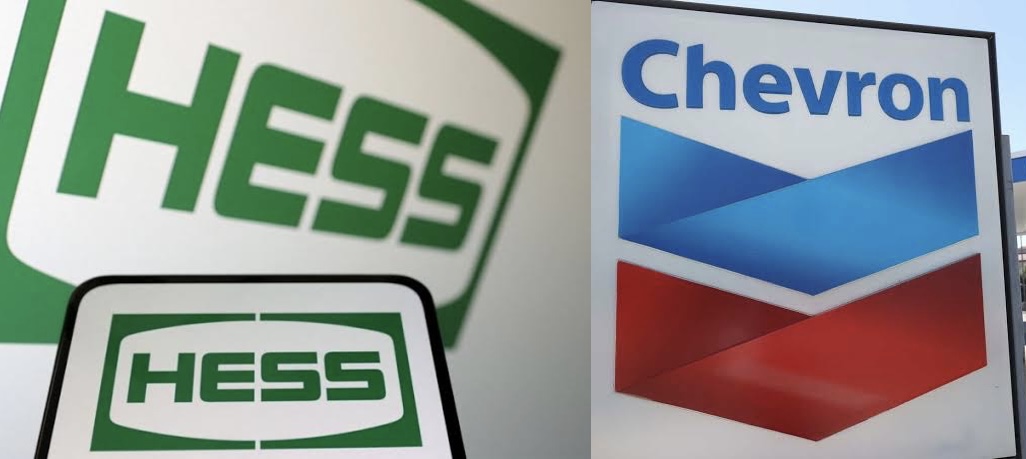Hess shareholders overwhelmingly approved the company’s $53 billion merger with Chevron, a move that paved the way for the oil giant to acquire coveted assets in Guyana. The vote clears a significant hurdle for the deal, but regulatory approval and a potential arbitration battle with Exxon Mobil and CNOOC remain.
Shareholder Vote Clears Path Forward
On Tuesday, May 28th, 2024, Hess shareholders voted in favor of the proposed $53 billion merger with Chevron. A majority of the company’s 308 million outstanding shares were cast in favor of the deal, although the exact vote tally was not immediately available. This win for CEO John Hess validates his decision to pursue the merger despite delays caused by the ongoing arbitration with Exxon Mobil. The merger offers significant benefits to Hess shareholders. They will own nearly 15% of the combined company, gaining access to Chevron’s much higher dividend yield, which is four times greater than Hess’.
While the shareholder vote is a positive step, the deal still faces challenges. Regulatory approval from the Federal Trade Commission (FTC) is expected in the coming weeks, based on the timeline of a similar merger earlier this month. However, a potentially lengthy arbitration battle with Exxon Mobil and CNOOC hangs over the deal. Both companies claim a right of first refusal on any sale of Hess’s Guyana assets. The outcome of this arbitration will significantly impact the deal’s completion. Exxon and CNOOC currently hold stakes in the Stabroek Block, Guyana’s giant oilfield, with Exxon operating all production. They argue that their existing agreements grant them the right to match any offer for Hess’s stake.
Strategic Implications for Both Companies
The merger holds strategic importance for both Chevron and Hess. For Chevron, acquiring Hess’s Guyanese assets offers a means to diversify its portfolio and mitigate geopolitical risks. Currently, Chevron’s TengizChevroil project in Kazakhstan faces challenges due to its reliance on Russia for oil transportation. Additionally, it could help offset cost overruns experienced at Chevron’s Australian liquefied natural gas (LNG) projects. For Hess shareholders, the merger provides access to Chevron’s larger reserves and production base, along with a more attractive dividend payout.
The shareholder vote strengthens Chevron and Hess’s position in negotiations with Exxon. While Exxon has not expressed interest in acquiring the entire Hess corporation, it hasn’t ruled out a bid for Hess’s Guyana holdings. Regardless of the outcome of the arbitration, the deal is expected to close in 2025. If Chevron prevails in the arbitration or reaches a settlement with Exxon, the merger will be finalized, giving Chevron a significant foothold in Guyana’s booming oil industry.
The potential rewards for Chevron in Guyana are significant. The Stabroek Block is estimated to hold billions of barrels of recoverable oil, making it one of the world’s most promising oil discoveries in recent years. Acquiring Hess’s stake would give Chevron a major boost in its production capacity and reserves. This would allow Chevron to compete more effectively with other oil giants in the global market.
Source: Reuters



